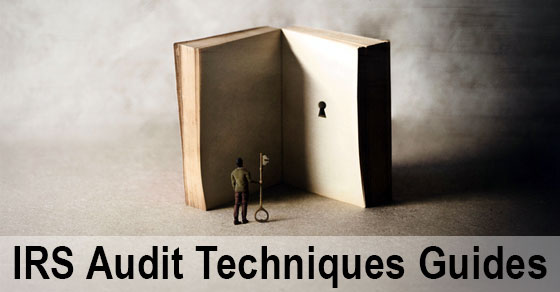Recent News
02/20/2026
To maximize — or not to maximize — depreciation deductions on your 2025 tax return
The deadlines for filing 2025 tax returns (or extensions) are fast approaching. Although most tax planning moves must be completed by December 31 of the tax year, there are some decisions you can make when filing your return that can save taxes now or in the future. One such decision is whether to claim accelerated depreciation breaks. Depreciation Basics For assets with a useful life of more than one year, the cost generally must be depreciated over a period of years (unless accelerated depreciation breaks are available). In other words, taxpayers can deduct only a portion of the asset’s cost...

Stay up to date! Subscribe to our future blog posts!
11/11/2021
Competitive Intelligence Can Give Your Marketing Campaigns an Edge
It’s understandable and indeed critical to focus a marketing campaign on the strengths and distinctive benefits of the products or services in question. However, something that’s easy to overlook is how your business and its offerings differ from — and are preferable to — the competition. Making this distinction isn’t as simple as, “Well, we’re better because we say so.” When you can present prospective customers with accurate data and solid reasoning behind why your products or services will fulfill their needs better than other options, you’ll stand a much better chance of turning those marketing dollars into revenue. This...
10/25/2021
Employers: The Social Security Wage Base is Increasing in 2022
The Social Security Administration recently announced that the wage base for computing Social Security tax will increase to $147,000 for 2022 (up from $142,800 for 2021). Wages and self-employment income above this threshold aren’t subject to Social Security tax. Background Information The Federal Insurance Contributions Act (FICA) imposes two taxes on employers, employees and self-employed workers — one for Old Age, Survivors and Disability Insurance, which is commonly known as the Social Security tax, and the other for Hospital Insurance, which is commonly known as the Medicare tax. There’s a maximum amount of compensation subject to the Social Security tax,...
10/18/2021
How Much Will Social Security Recipients Collect Monthly in 2022?
Monthly Social Security and Supplemental Security Income (SSI) benefits for more than 70 million Americans will increase 5.9% in 2022, the federal government recently announced. The 5.9% cost-of-living adjustment (COLA) will begin with benefits that more than 64 million Social Security beneficiaries will receive in January 2022. Increased payments to more than 8 million SSI beneficiaries will begin on December 30, 2021. (The Social Security Administration notes that some people receive both types of benefits.) The COLA amount for 2021 was 1.3% and for 2020, it was 1.6%. The purpose of the COLA, according to the Social Security Administration, is...
09/30/2021
Is It Time to Upgrade Your Accounting System?
Timely financial data is key to making informed business decisions. Unfortunately, it’s common for managers to struggle with their companies’ accounting systems to get the information they need, when they need it. Often, it takes multiple, confusing steps to enter and extract data specific to customers and/or projects. Businesses and accounting software solutions evolve over time. So, what worked for your company years ago may not be the optimal solution today. For example, you might prefer a different solution that’s more user-friendly, more sophisticated or customized for your industry niche. Here are four factors — beyond just cost — to...
09/14/2021
Tax Breaks to Consider During National Small Business Week
The week of September 13-17 has been declared National Small Business Week by the Small Business Administration. To commemorate the week, here are three tax breaks to consider. 1. Claim Bonus Depreciation or a Section 179 Deduction for Asset Additions Under current law, 100% first-year bonus depreciation is available for qualified new and used property that’s acquired and placed in service in calendar year 2021. That means your business might be able to write off the entire cost of some or all asset additions on this year’s return. Consider making acquisitions between now and December 31. Note: It doesn’t always...
08/31/2021
Want to Find Out What IRS Auditors Know About your Business Industry?
In order to prepare for a business audit, an IRS examiner generally does research about the specific industry and issues on the taxpayer’s return. Examiners may use IRS “Audit Techniques Guides (ATGs).” A little-known secret is that these guides are available to the public on the IRS website. In other words, your business can use the same guides to gain insight into what the IRS is looking for in terms of compliance with tax laws and regulations. Many ATGs target specific industries or businesses, such as construction, aerospace, art galleries, architecture and veterinary medicine. Others address issues that frequently arise...





